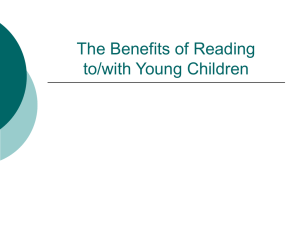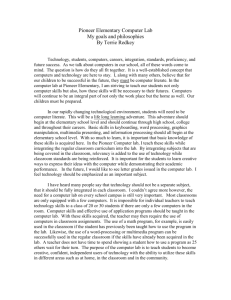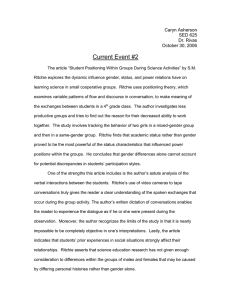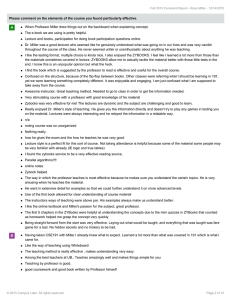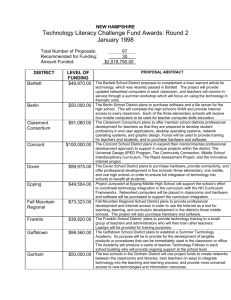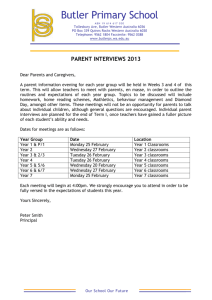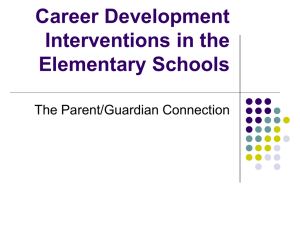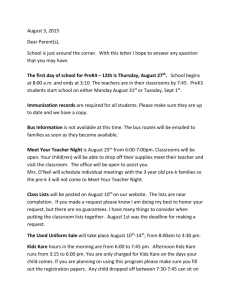New Teachers Rarely Learn Classroom Management
advertisement
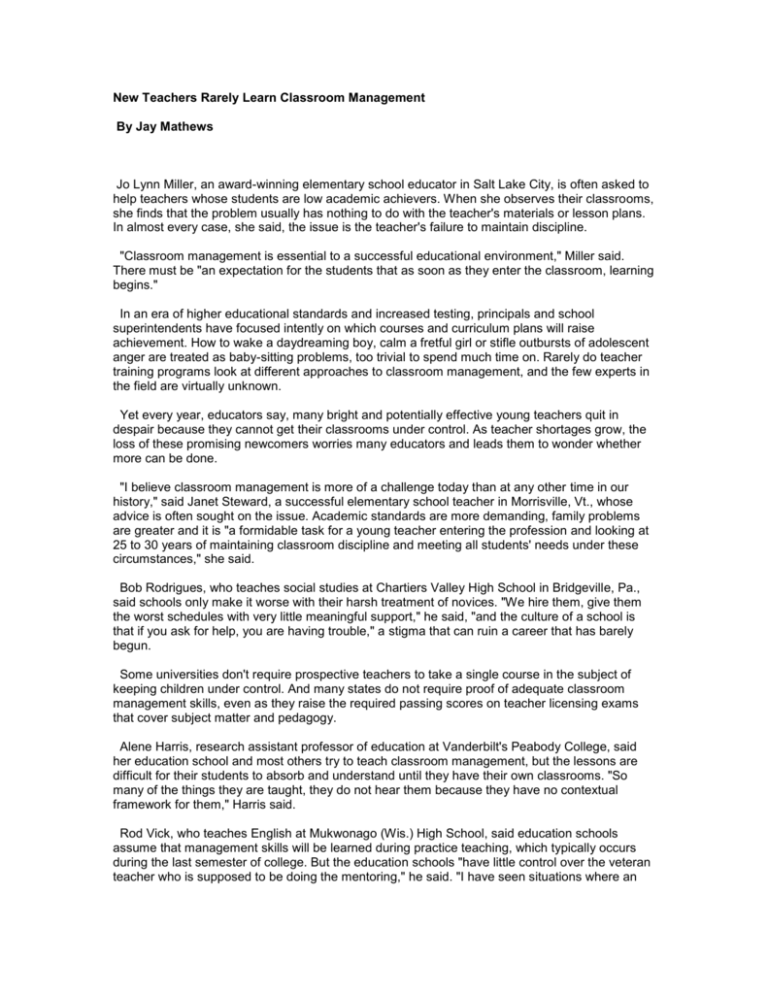
New Teachers Rarely Learn Classroom Management By Jay Mathews Jo Lynn Miller, an award-winning elementary school educator in Salt Lake City, is often asked to help teachers whose students are low academic achievers. When she observes their classrooms, she finds that the problem usually has nothing to do with the teacher's materials or lesson plans. In almost every case, she said, the issue is the teacher's failure to maintain discipline. "Classroom management is essential to a successful educational environment," Miller said. There must be "an expectation for the students that as soon as they enter the classroom, learning begins." In an era of higher educational standards and increased testing, principals and school superintendents have focused intently on which courses and curriculum plans will raise achievement. How to wake a daydreaming boy, calm a fretful girl or stifle outbursts of adolescent anger are treated as baby-sitting problems, too trivial to spend much time on. Rarely do teacher training programs look at different approaches to classroom management, and the few experts in the field are virtually unknown. Yet every year, educators say, many bright and potentially effective young teachers quit in despair because they cannot get their classrooms under control. As teacher shortages grow, the loss of these promising newcomers worries many educators and leads them to wonder whether more can be done. "I believe classroom management is more of a challenge today than at any other time in our history," said Janet Steward, a successful elementary school teacher in Morrisville, Vt., whose advice is often sought on the issue. Academic standards are more demanding, family problems are greater and it is "a formidable task for a young teacher entering the profession and looking at 25 to 30 years of maintaining classroom discipline and meeting all students' needs under these circumstances," she said. Bob Rodrigues, who teaches social studies at Chartiers Valley High School in Bridgeville, Pa., said schools only make it worse with their harsh treatment of novices. "We hire them, give them the worst schedules with very little meaningful support," he said, "and the culture of a school is that if you ask for help, you are having trouble," a stigma that can ruin a career that has barely begun. Some universities don't require prospective teachers to take a single course in the subject of keeping children under control. And many states do not require proof of adequate classroom management skills, even as they raise the required passing scores on teacher licensing exams that cover subject matter and pedagogy. Alene Harris, research assistant professor of education at Vanderbilt's Peabody College, said her education school and most others try to teach classroom management, but the lessons are difficult for their students to absorb and understand until they have their own classrooms. "So many of the things they are taught, they do not hear them because they have no contextual framework for them," Harris said. Rod Vick, who teaches English at Mukwonago (Wis.) High School, said education schools assume that management skills will be learned during practice teaching, which typically occurs during the last semester of college. But the education schools "have little control over the veteran teacher who is supposed to be doing the mentoring," he said. "I have seen situations where an education student was dumped into a classroom on day one and told, 'It's all yours.' The veteran teacher disappeared." To fill the gap, many school districts are hiring consultants. Michael Grinder, a Battle Ground, Wash.-based consultant who specializes in nonverbal techniques for class management, conducts seminars for working teachers on weekends and professional development days. He said the optimal moment to expose teachers to his methods is after their first year. "They have to have had the experience of doing things wrong before they can learn how to do them right," he said. Experienced teachers say the key to influencing student behavior is not rules or punishments but a personal bond with each child. "I have been doing this for 22 years, and I find that a key ingredient in classroom control is disciplining from a relationship," said Mark Witwer, who teaches science at the Delaware County Christian School in Newtown Square, Pa. "Kids, like all of us, respond better to correction -- even ultimatums -- from someone they know and respect." Larry Aiello, a 23-year-old civics teacher at Irving Middle School in Fairfax County, said, "I try to deal with kids on a personal level and try to let them know that I am trying to do the best I can for them." Because he works closely with three other teachers in the school's team system, he can compare notes on specific students and get a sense of what works with each child, he said. "Kids crave attention," said Stewart Chang, 24, who is in his first year of teaching math at Newman Smith High School in Carrollton, Tex. When he was teaching high school math last year in Louisiana, "one of the wackiest things that happened was when a student wrote his name on a TV set in permanent marker," Chang said. "Obviously, anonymous mischief was not the goal. It was more like an attempt to get noticed, even if that meant notoriety." Gail Ritchie, an award-winning elementary school teacher in Fairfax County, recommends that young teachers try different management styles until they find the one that suits them. The worst thing, Ritchie said, is to force a teacher to strap on a management system that doesn't fit. "One of the teachers I coach has been told what behavior management system she must use," Ritchie said, "and she does not like the system. I feel this is a recipe for disaster." A new teacher needs time and training to learn the various approaches that work and to discover which is the best fit. Experts say this requires better student teaching programs and more investment in summer courses and seminars to give teachers already in the classroom the skills they need. "An educator must be well-organized and planned. The students must be able to trust the teacher and their peers that the classroom will be a safe place," said Miller, the Salt Lake City teacher. "It is very difficult to establish the right atmosphere with a group of students if it is not there from the first day of school."

